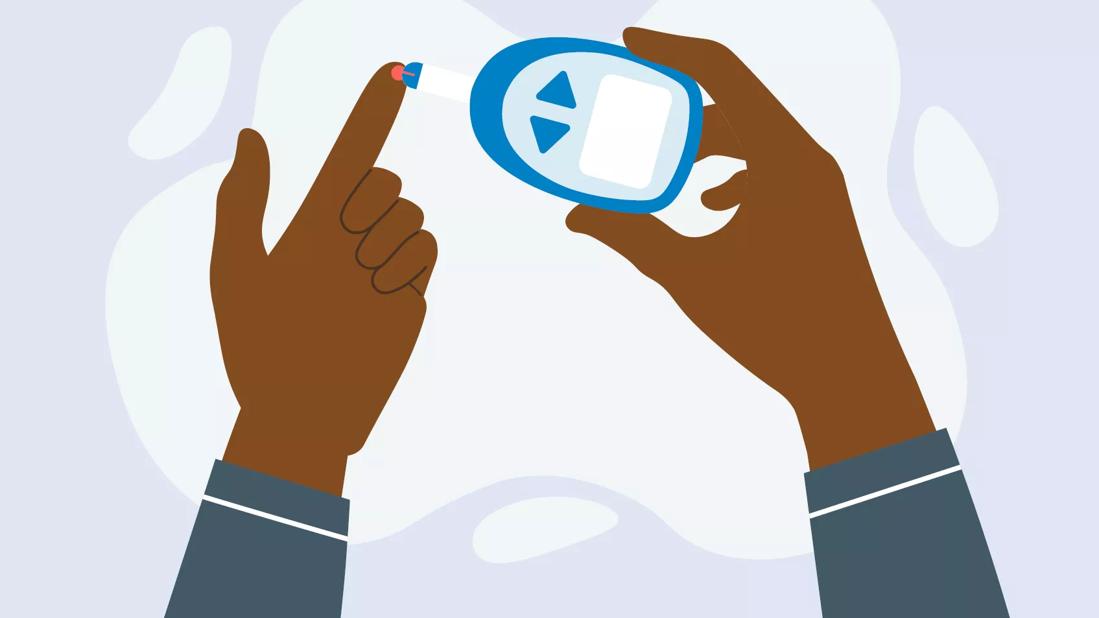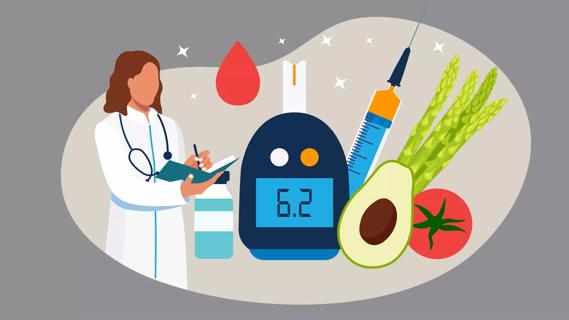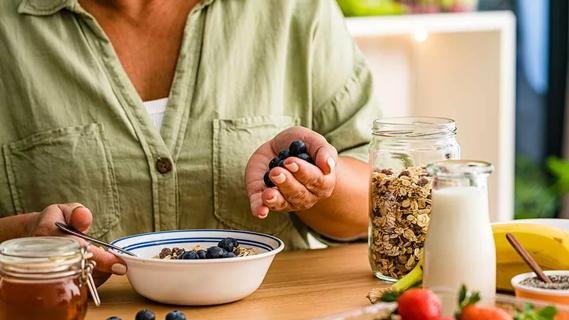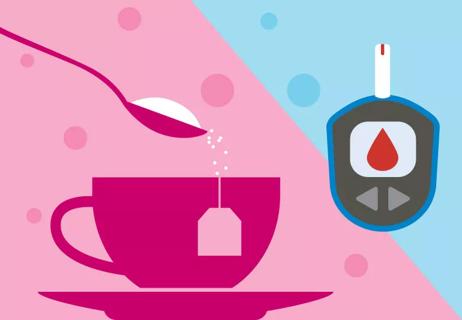Regular testing can help detect diabetes early on

High blood sugar can sneak up on you without any obvious symptoms. In fact, most people don’t know they have high blood sugar until they’ve been diagnosed with Type 2 diabetes — and they’ve probably had it for some time.
Advertisement
Cleveland Clinic is a non-profit academic medical center. Advertising on our site helps support our mission. We do not endorse non-Cleveland Clinic products or services. Policy
The telltale signs of Type 2 diabetes, such as frequent urination and excessive thirst, are often subtle, especially early on. But ignoring them can cause worse health problems down the road.
Even mild blood sugar elevation can damage your nerves, kidneys and retinas. And the higher your blood sugar levels and the longer you go without treatment, the worse the damage can get.
“When we diagnose someone, we assume they have probably already had diabetes for about five years,” says endocrinologist Kevin Pantalone, DO. “During screenings, a certain number of people who are newly diagnosed already have been living with kidney problems and retinal issues, so they’ve had it for some time.”
Dr. Pantalone says there are several symptoms that can occur early on with diabetes. Even if they’re subtle, they’re worth mentioning to your doctor.
Having to go to the bathroom more than normal, particularly at night, is a sign that your blood sugar might be out of whack. For example, Dr. Pantalone says one of his patients came in for a diagnosis after a family member noticed he was using the bathroom during each commercial break when they watched TV.
When your blood sugar is high and your kidneys can’t filter it well enough, sugar ends up in your urine. More sugar in a warm, moist environment can cause urinary tract and yeast infections, especially in women.
Advertisement
If you have diabetes, your body isn’t able to use glucose (sugar) as effectively for its energy. Instead, your body will start burning fat stores, and you may experience unexpected weight loss.
High sugar levels can distort the lenses in your eyes, worsening your vision. Changes in your eyeglass prescription or vision are sometimes a sign of diabetes.
Several underlying causes of fatigue may relate to diabetes/high sugar levels, including dehydration (from frequent urination, which can disrupt sleep) and kidney damage. This feeling of exhaustion is often persistent and can interfere with your daily activities, Dr. Pantalone notes.
Something that Dr. Pantalone often sees in people before a diabetes diagnosis is dark skin in their neck folds and over their knuckles. Insulin resistance can cause this condition, known as acanthosis nigricans.
According to the U.S. Centers for Disease Control and Prevention (CDC), men are more likely to be diagnosed with Type 2 diabetes at a lower weight. One reason for this is that men tend to store more fat around their stomachs and this is a risk factor. Men who are living with Type 2 diabetes are also more likely to have heart disease. This combination could lead to erectile dysfunction (ED). In fact, the CDC says men who’re living with diabetes are three times more likely to experience ED. Nerve damage from diabetes can also lead to:
Women who’re living with Type 2 diabetes have more to manage. According to the CDC, diabetes can increase the risk of heart disease by about four times in women as compared to two times in men. Women are also at higher risk of other diabetes-related complications such as blindness, kidney disease and depression.
Women who are living with Type 2 diabetes might also have:
Type 2 diabetes also affects women from specific ethnic groups differently. African American, Alaska Native, American Indian, Asian American, Hispanic/Latino, Native Hawaiian and Pacific Islander women are more likely to have diabetes than white women.
It’s possible to prevent Type 2 diabetes. Most of it comes down to managing your weight and exercising regularly. Losing just 5% of your current weight can help reverse prediabetes, which is when you have higher blood sugar levels but they’re not high enough for you to be diagnosed with diabetes. It also helps to cut back on processed foods, alcohol, sugary drinks and trans fat. Go for whole grains, lean protein, fruit, non-starchy vegetables, water and unsweetened drinks instead.
Advertisement
“Often, what happens is people minimize the symptoms or rationalize them and they get worse until they become severe enough that they have to see someone,” Dr. Pantalone says. “They have excessive weight loss or are really tired of peeing all night.”
Because symptoms of diabetes are often subtle or nonexistent, especially around the onset, it’s important to see your doctor regularly for a checkup and testing. This is a must if you’re overweight or have risk factors — if diabetes runs in your family, for instance.
Risk factors include:
The U.S. Preventive Services Task Force recommends screening for Type 2 diabetes if you’re between the ages of 40 and 70. If results are normal, you should repeat the testing every three years. If you have a risk factor, the task force recommends beginning screening at a younger age and testing more frequently.
Advertisement
Learn more about our editorial process.
Advertisement

Hot, humid weather can affect your blood sugar levels and even cause dehydration or heat stroke

The good news? Prediabetes can be erased with healthy lifestyle changes, including eating more nutritious foods

Fresh or frozen fruits that are low on the glycemic index should be your go-to, as they’re full of fiber and other nutrients

Adding nuts like pistachios, almonds or pecans to your diet can help manage blood sugar levels

A diabetes diagnosis, new or long-standing, can trigger reactions like grief, stress, depression and frustration, but symptom relief and help are available

The short answer: Yes, but you need to eat it in moderation and keep track of how much you consume

Sweet potatoes are great, but sweetened drinks aren’t so great

Some sweeteners may have health risks, so it’s best to keep your intake moderate

Wearing a scarf, adjusting your outdoor activities and following your asthma treatment plan can help limit breathing problems

Your diet in the weeks, days and hours ahead of your race can power you to the finish line

When someone guilt trips you, they’re using emotionally manipulative behavior to try to get you to act a certain way